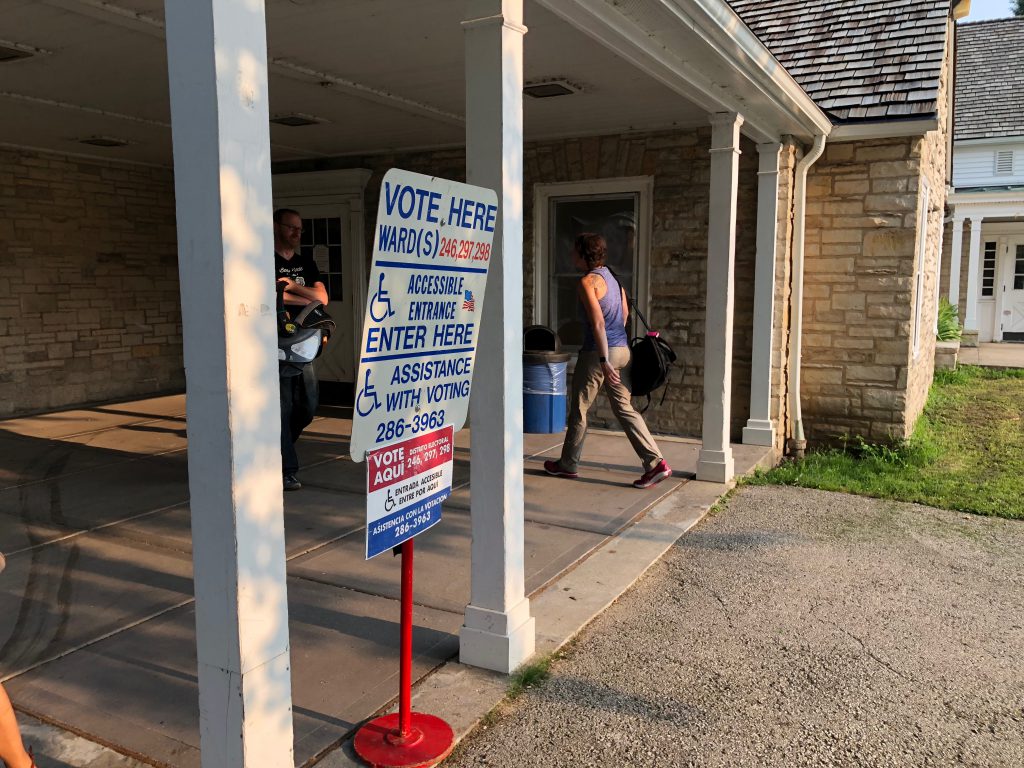Supervisors Push Ex-Offender Voting Rights
Resolution calls for restoring the voting rights of people on parole or probation.
Milwaukee County Supervisor Sequanna Taylor is proposing a resolution to restore and protect the voting rights of people on parole or probation. Nearly 65,000 people in Wisconsin are denied the right to vote after they have served time and paid their debt to society, Taylor explained, because they are still “on paper.”
“When a person is released from incarceration into the community they are told to be a productive, good citizen by getting a job, paying taxes, and making a positive contribution,” Taylor said in a statement. ”If they are being asked to add to the community by being good citizens, they ought to be given the same rights of citizenship that allow us all to pursue opportunity, support our families, and contribute to our communities.”
Her resolution also calls for a comprehensive review and revision of Wisconsin’s sentencing guidelines, particularly regarding parole and revocation. It comes in the wake of the aptly named “Unlock The Vote” bill, proposed by Sen. Lena Taylor (D-Milwaukee), Rep. Jodi Emerson (D- Eau Claire), and Rep. David Crowley (D-Milwaukee). Introduced in July, that bill also focuses on restoring voting rights to Wisconsinites on parole and probation.
The American Civil Liberties Union (ACLU) of Wisconsin is conducting a Justice Tour to discuss reform, and the impact of “crimeless revocation” on communities.
Crimeless revocations send former prisoners back to jail for minor parole violations. Being late to a parole officer meeting, failing a drug test as a recovering user, or moving to a new house without permission from a parole officer are among the reasons people can have their parole revoked, and be re-incarcerated.
ACLU state organizer Sean Wilson, who hosted the first Justice Tour meeting in Milwaukee, shared a story of an acquaintance who was found to have violated parole, and was sent back to jail, because he had moved from his duplex’s upper unit to the bottom unit without first informing his parole officer.
Supervisor Taylor’s resolution mentions that Maine and Vermont are the only two states which do not “disenfranchise felons.” Wisconsin has the highest incarceration rate of African American men in the nation. Milwaukee, one of America’s most segregated cities, is also home to the nation’s most incarcerated zip code.
Tackling the issue through policy reforms has also become a priority for some Republicans. In 2017, Sen. Alberta Darling (R-River Hills), and Rep. Rob Hutton (R-Brookfield) both voiced support for the RISE (Reduce Incarceration, Secure Employment) Act. “Many inmates try to learn new skills while they are in prison, but still can’t find a job when they get out,” Darling said. “The RISE Act will help make use of those skills which are growing in demand in our state.” She declared that, “helping a reformed ex-offender will stop the revolving door and save taxpayer money.”
Supervisor Taylor told Wisconsin Examiner, “we believe this is something beneficial for all of Wisconsin and are willing to work across the aisle to find common ground.”
Her resolution is being co-sponsored by Supervisors Willie Johnson, Jr., and Steven Shea. Sup. Johnson Jr. is also a member of the executive committee of the Milwaukee Community Justice Council.
Reprinted with permission of Wisconsin Examiner.
Political Contributions Tracker
Displaying political contributions between people mentioned in this story. Learn more.
MKE County
-
Prosecution Rests Case in Dugan Trial
 Dec 17th, 2025 by Graham Kilmer
Dec 17th, 2025 by Graham Kilmer
-
Chief Judge Questioned About ICE Policy, Texts, Emails in Dugan Trial
 Dec 17th, 2025 by Graham Kilmer
Dec 17th, 2025 by Graham Kilmer
-
Fellow Judge Testifies in Dugan Case
 Dec 16th, 2025 by Graham Kilmer
Dec 16th, 2025 by Graham Kilmer




















